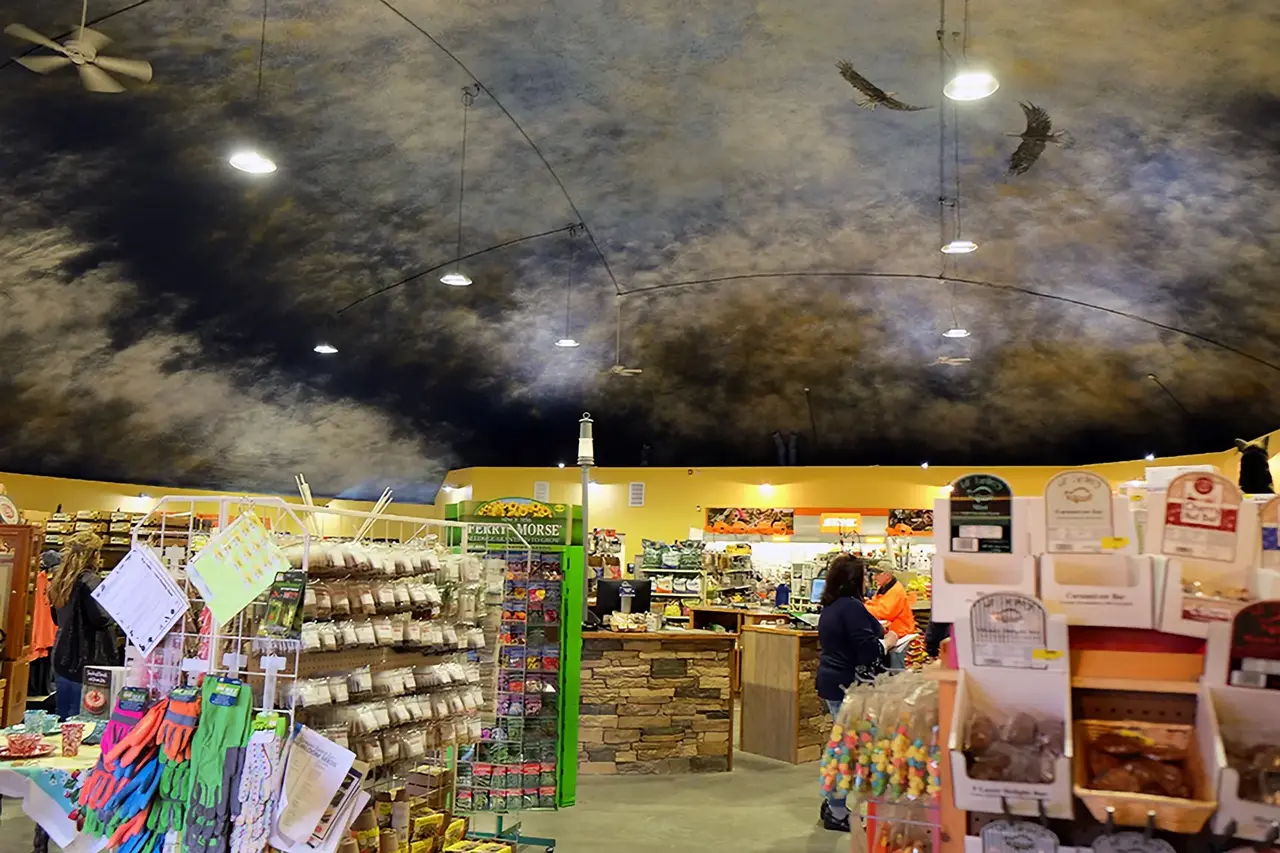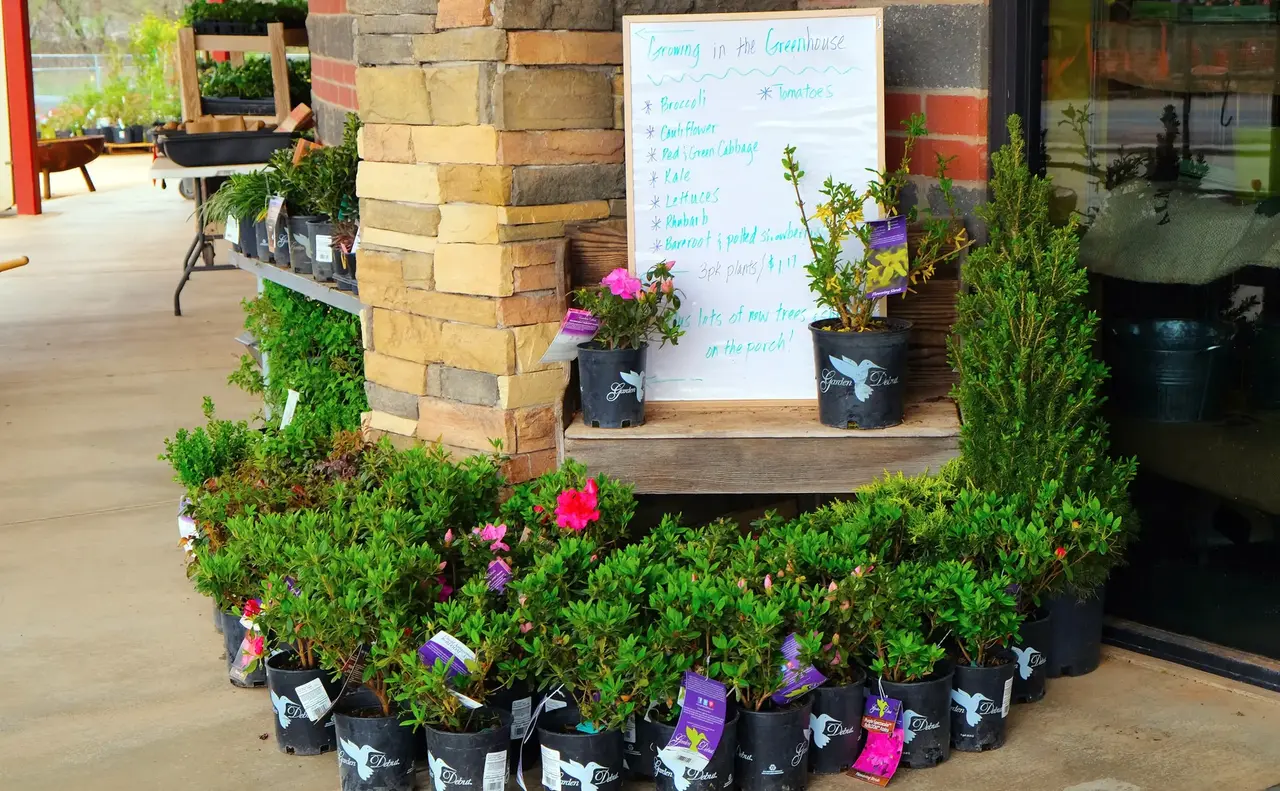A Family Legacy Continues in Monolithic Dome Store on Route 66
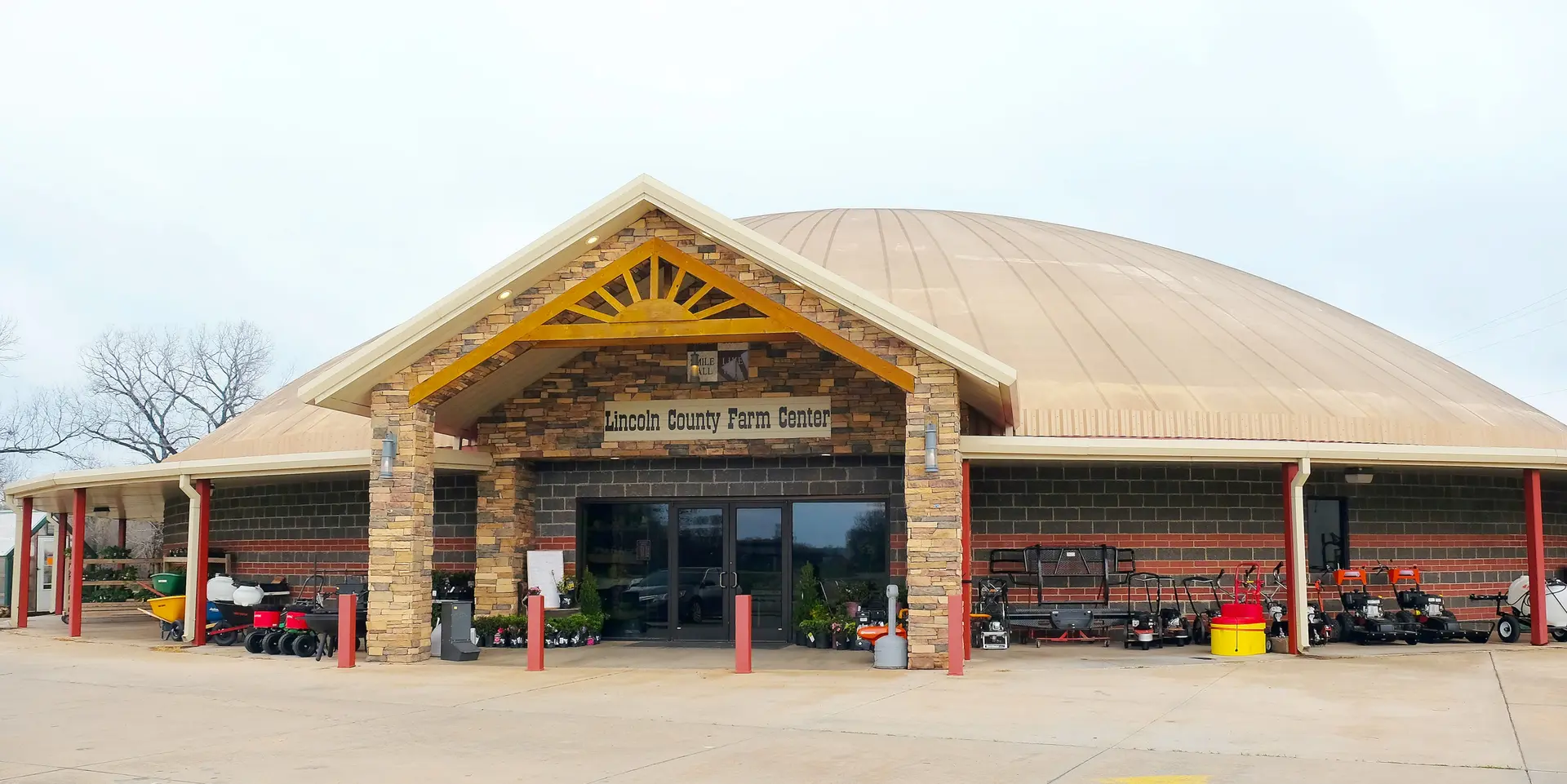
The Lincoln County Farm Center is a garden, farm, and hardware store. It is part of the larger farming services center on the famous US Route 66 in Chandler, Oklahoma.
Children are generally the first to notice them, pointing up as they enter the Lincoln County Farm Center. “I think their perspective is magnified because they’re low,” said Mandy Myers, who runs the store with her mother, Nelda Matthews, and her sister, Mara Blackwell. “They immediately notice the ceiling. They’re the first to see the eagles.”
The circling eagles are painted on a skyscape inside the dome over the store in Chandler, Oklahoma, nestled near historic Route 66 northeast of Oklahoma City. For years, since Bill and Nelda Matthews founded it in 1971, the store was situated in a long, narrow building near its feed and fertilizer operations. But then two things happened.
First, Bill Matthews took an interest in Monolithic Domes, attracted by the safe storage one could offer for the farm center’s fertilizer blend operation. That interest led him to David South, president of Monolithic and co-inventor of its signature dome system. South helped Matthews design and build a dome to house the fertilizer operation just a few hundred yards from the store. The operation moved into its new home in 1979, and its gleaming silver dome has become one of the most recognizable landmarks along this stretch of Route 66.
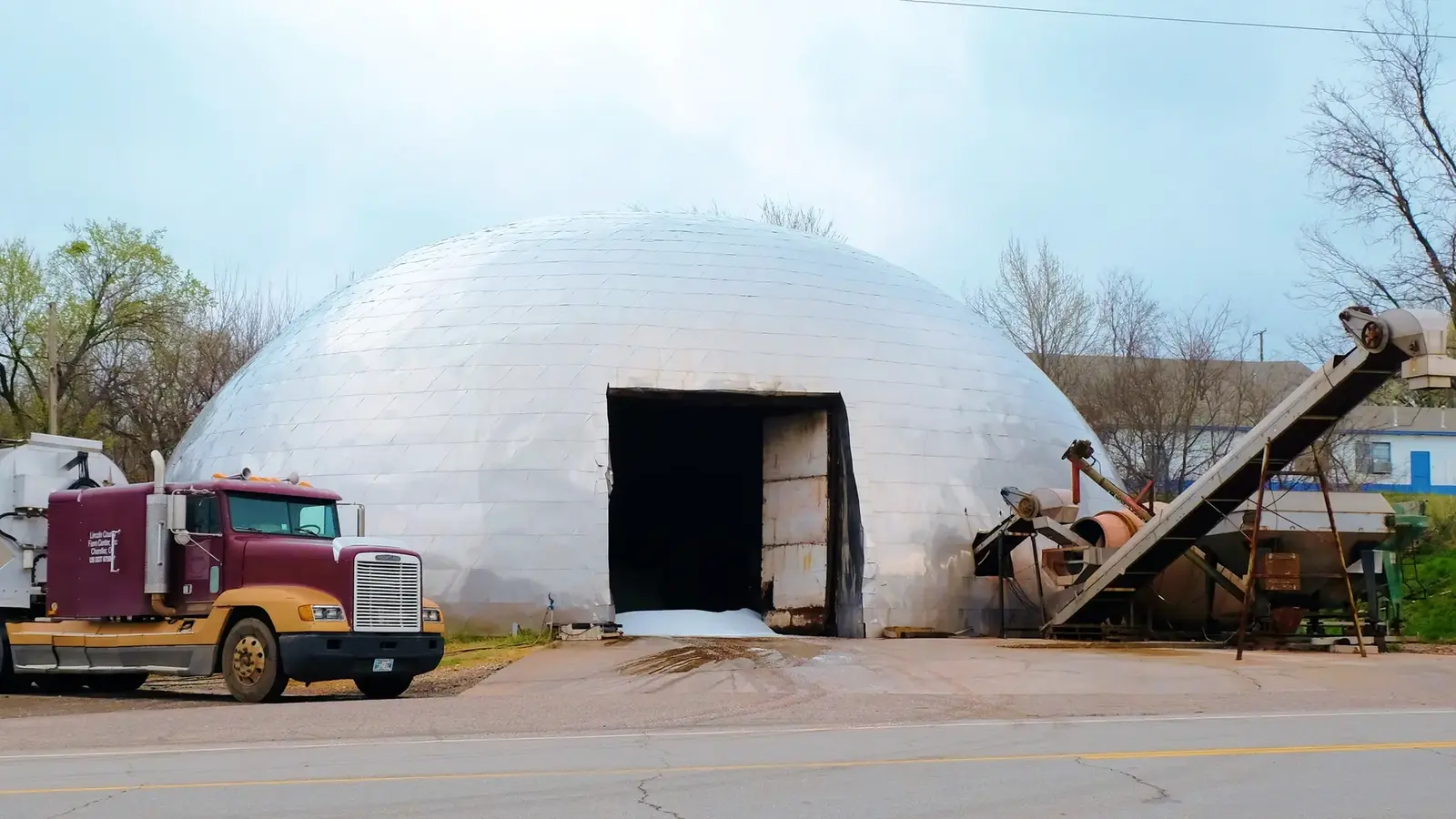
The original Monolithic Dome, just down the road, was built in 1979 to accommodate the farm center’s fertilizer operation.
Two, some twenty years later, both Bill and Nelda Matthews decided the store needed a new home. “The store we had over there we didn’t have the room that we wanted or needed,” Nelda Matthews said. “And, of course, that was an old building we had repaired and worked and remodeled about as much as we thought we could practically do.”
The fertilizer operation’s dome had shown how well domes work, especially with Oklahoma’s sometimes violent weather, so the Matthews decided the new store would also be housed in a dome.
“You know, an egg is one of the strongest things there are for its size,” Nelda Matthews said. “The dome is not egg-shaped, of course, but when the wind the hits a conventional cubular or rectangle building, it hits it with full force. With the rounded shape of the dome, it spreads that force out.”
But in 2010, before they could fully launch their project, Bill Matthews died.
Nelda Matthews paused at this point, collecting her thoughts. “After my husband passed away,” she finally said, “I wanted to complete the dream.”
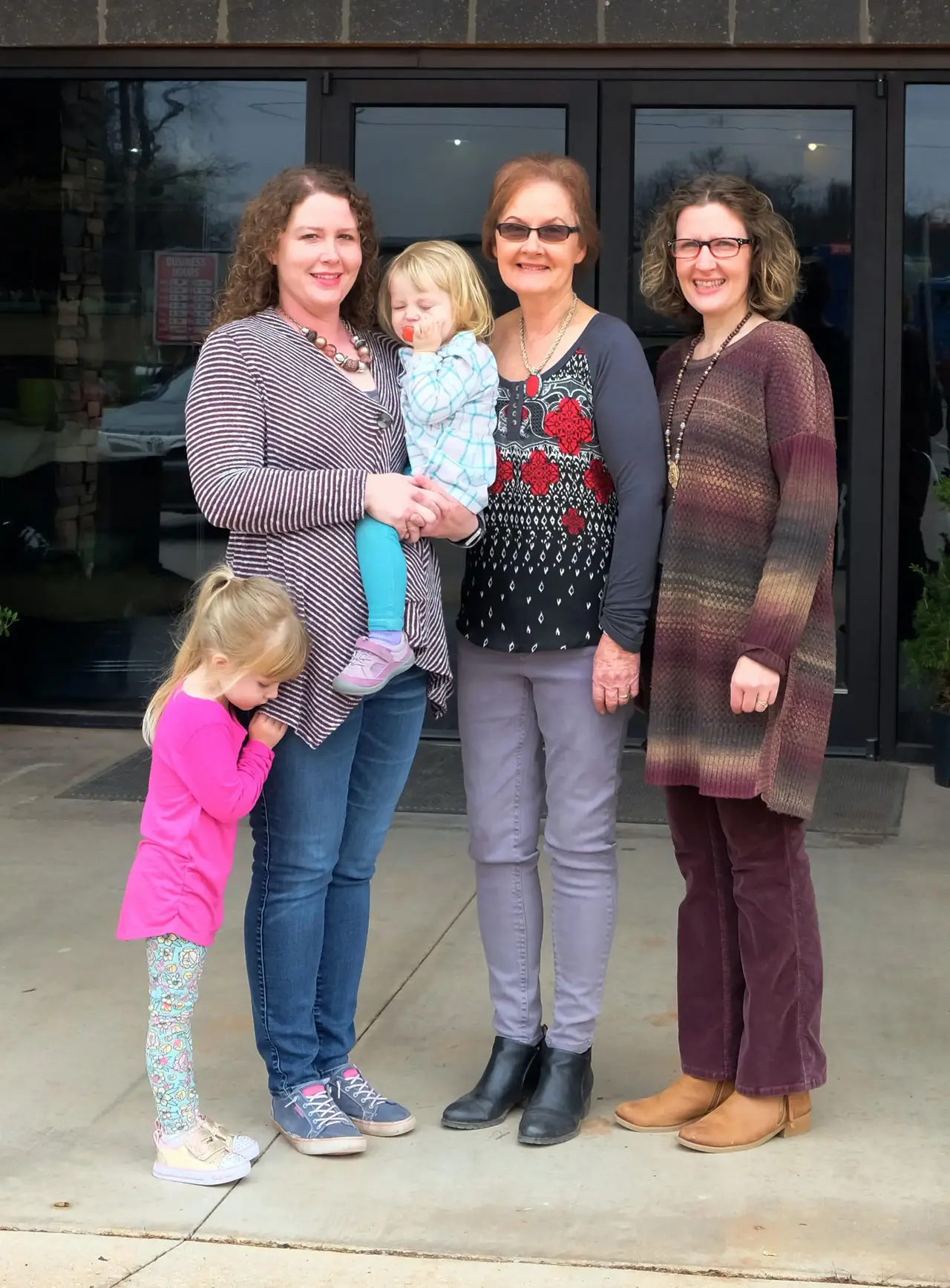
It’s a family business with (left to right) Ava Blackwell, age 4; her mother Mara Blackwell; Ella Blackwell, age 2; Nelda Matthews; and Mandy Myers.
That dream took shape next to the original store. “It was very exciting when we blew up the skin for this building,” said Matthews of the farm center. “There were people lined up all around.”
For the store, the family went with a softer look. They paired a natural stone facade outside with a painted tan roof. Inside, they opted for warm colors, partly to put customers at ease, partly to set themselves apart from big box stores.
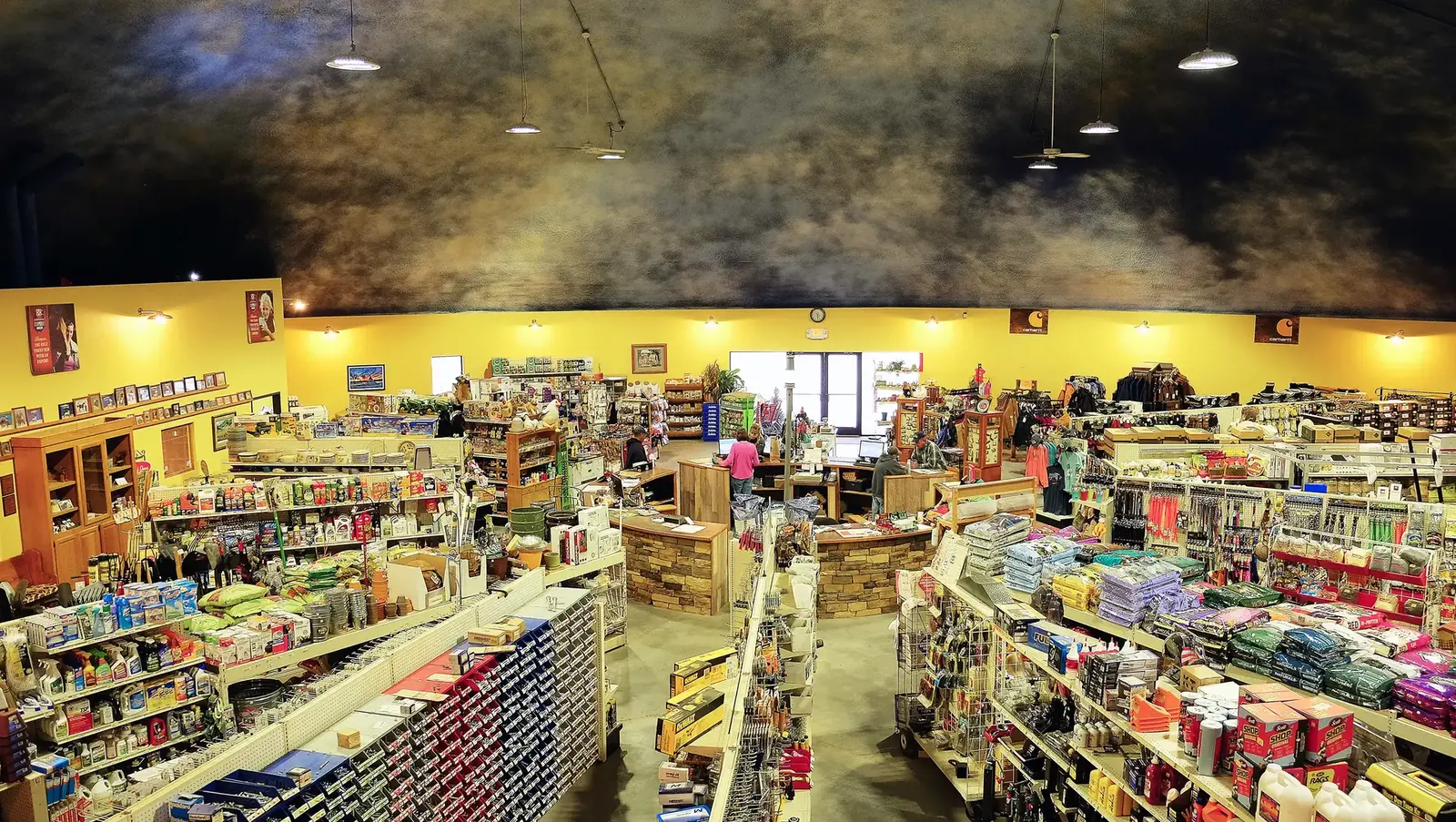
A wagon-wheel configuration with the farm center’s customer service center and checkout in the center takes advantage of the dome’s space.
“According to the plans, the ceiling was supposed to be black,” Nelda Matthews said, shaking her head. “I said no, it’s not going to be black.” So they brought in Dr. Bob Palmer, a former university professor whose murals can be found across the country, to paint the prairie sky across the ceiling.
Below, shelves spread out like wagon-wheel spokes with the customer service desk in the center. “Vision is one of the big things,” Matthews said. “You can stand in the center here, and you can see down all the aisles.”
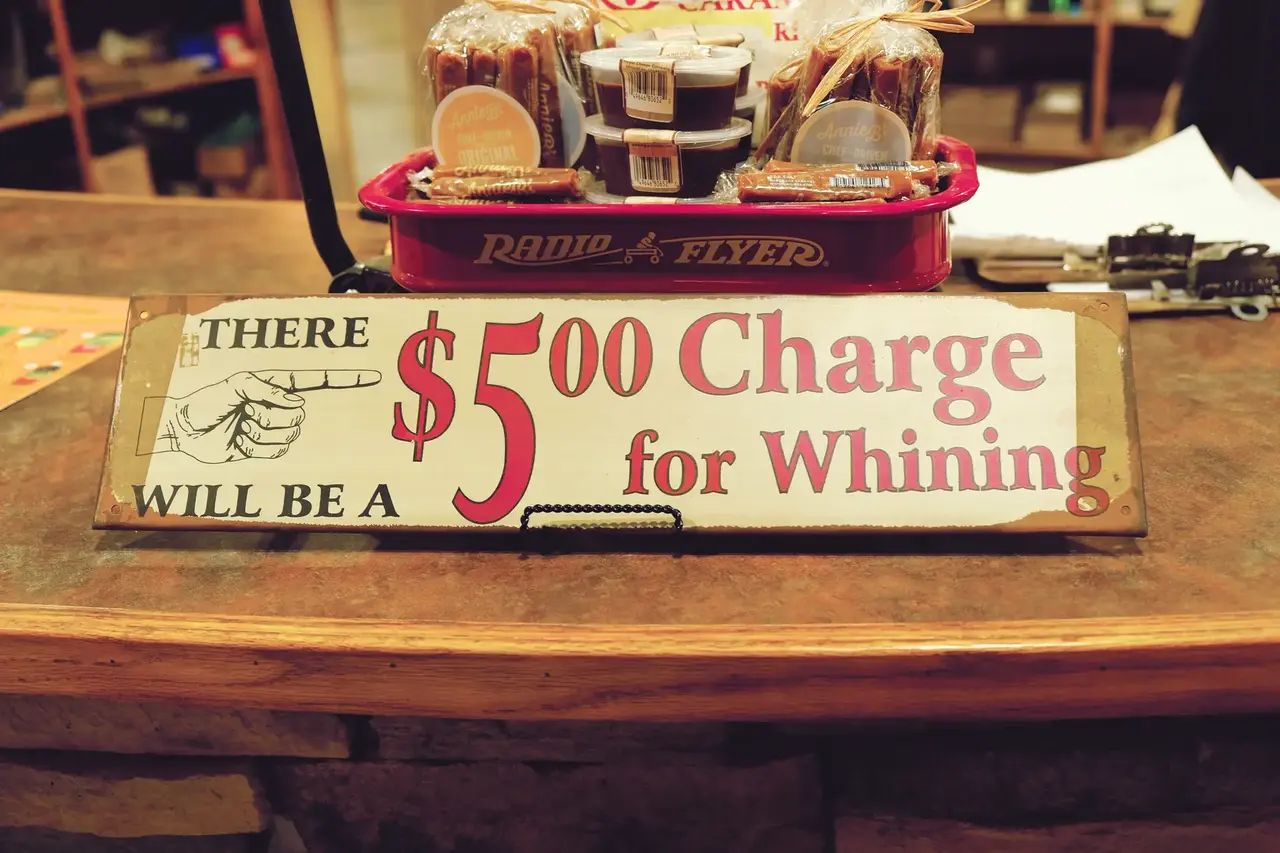
Clothing, hardware, home décor, and garden supplies are some of the many items sold in the shop — including a warning sign for whiners.
The Lincoln County Farm Center opened in its domed location in 2015. So far, nature hasn’t tested its durability, but Matthews said she’s seen other advantages.
“The space that we have here that’s heated and cooled is over twice what we had next door,” she said. “But average bill for here has been less over here that over there. And we’re comfortable here.”
Outside, embedded in the stone above main doors, are four squares bearing four phrases: STAND TALL. THINK TALL. SMILE TALL. LOVE TALL.
Ralston-Purina founder William H. Danforth embedded that Four-Square Philosophy deep in the DNA of his his pet food company. The “talls” encompass integrity, passion, expertise and performance.
“At my husband’s death,” Matthews recalled, “one of the salesmen my husband worked closely commented to me, ‘Bill was the Four-Square man.’ So we had that (display) put up in honor of him.”
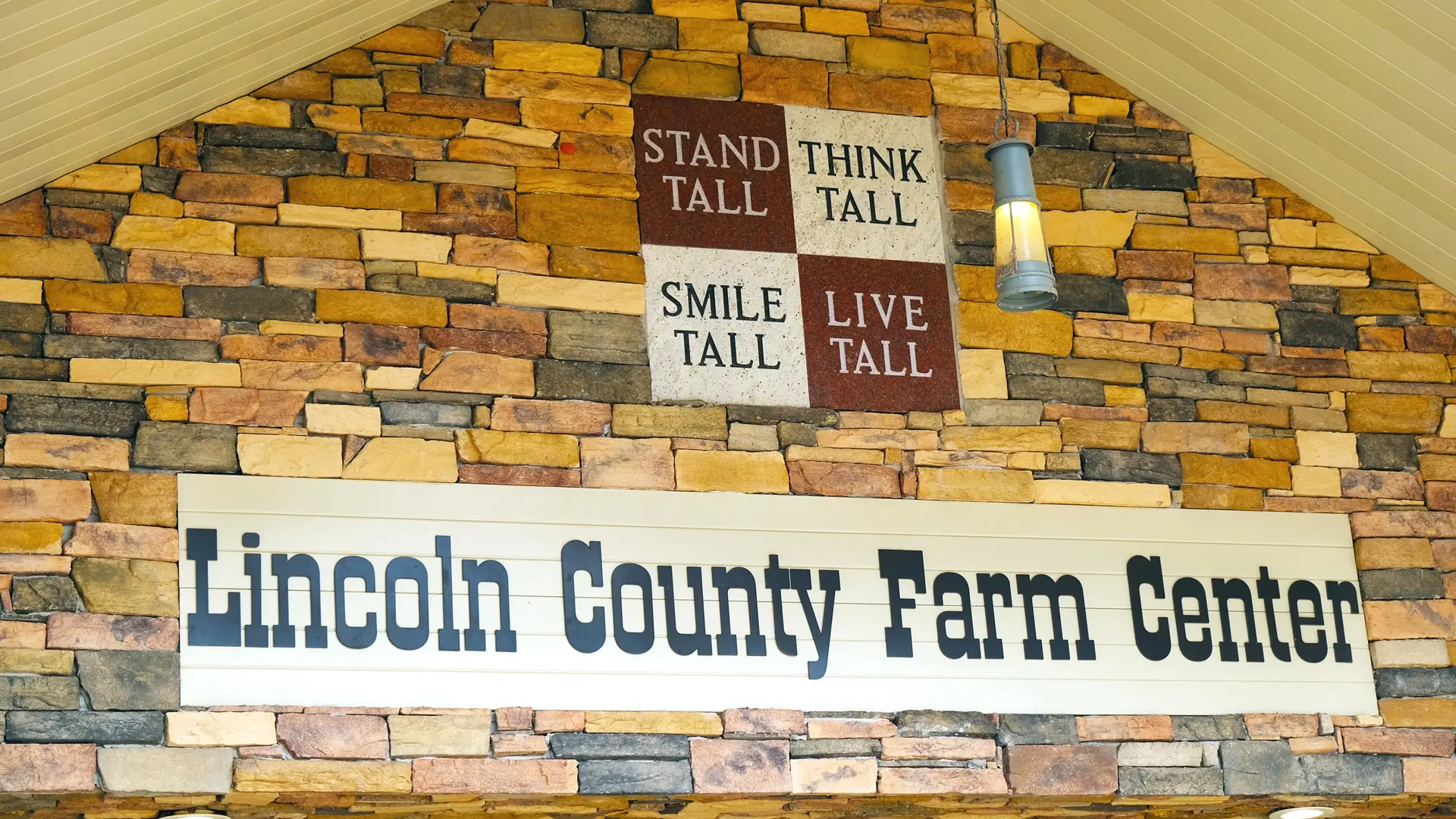
Above the farm center’s main doors are four squares bearing the words “STAND TALL. THINK TALL. SMILE TALL. LIVE TALL.” This was a philosophy espoused by Ralston-Purina founder William H. Danforth. After Bill Matthews died, a Purina salesman who worked closely with him told Nelda Matthews, “Bill was a four-square man.” They included Danforth’s words in the stonework as both a nod to a longtime corporate partner as well as in memory of Bill Matthews.

